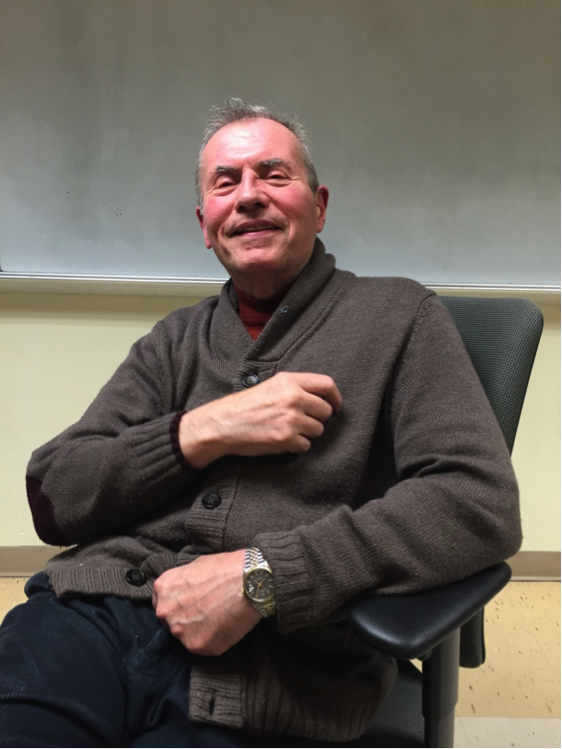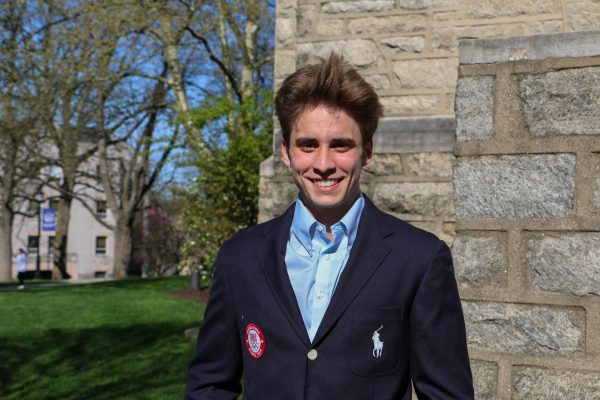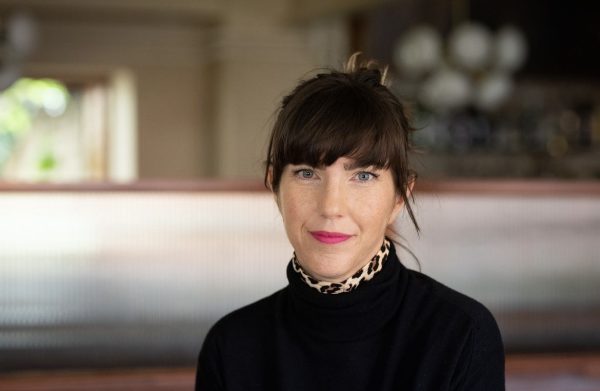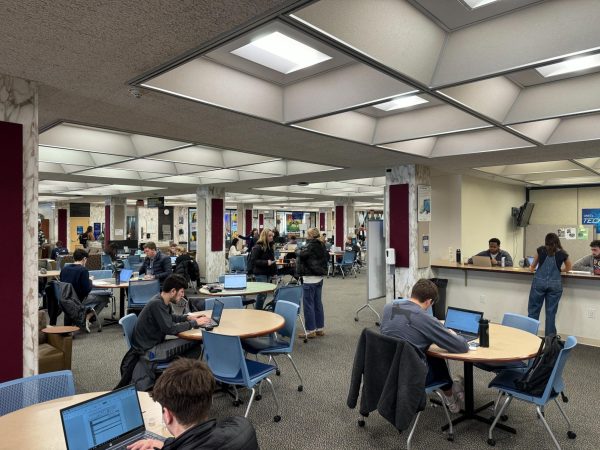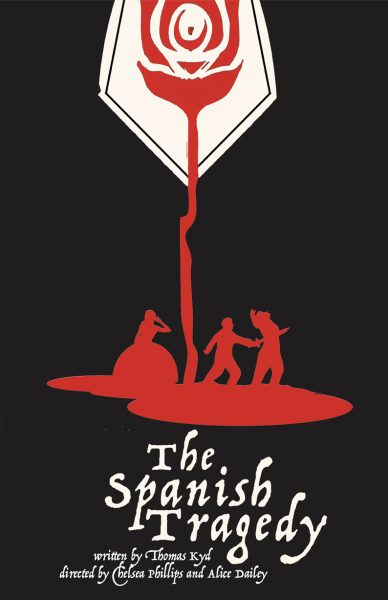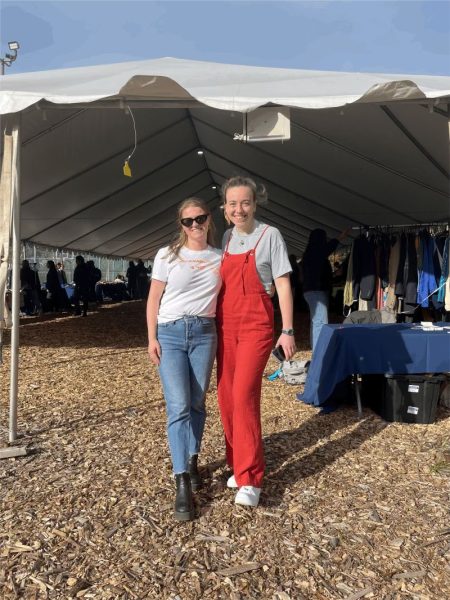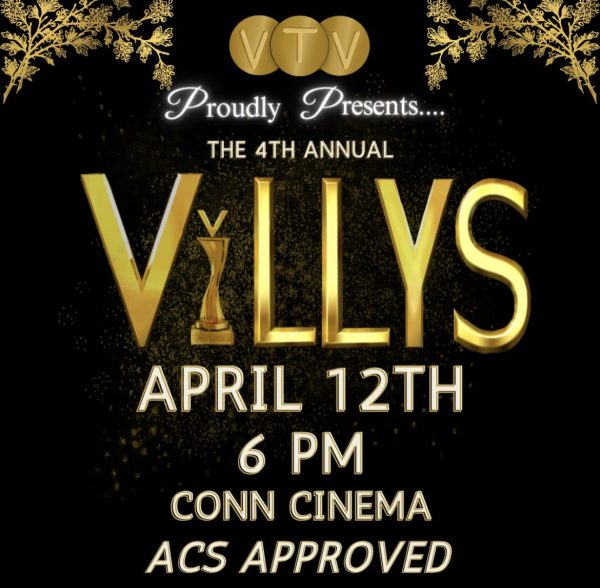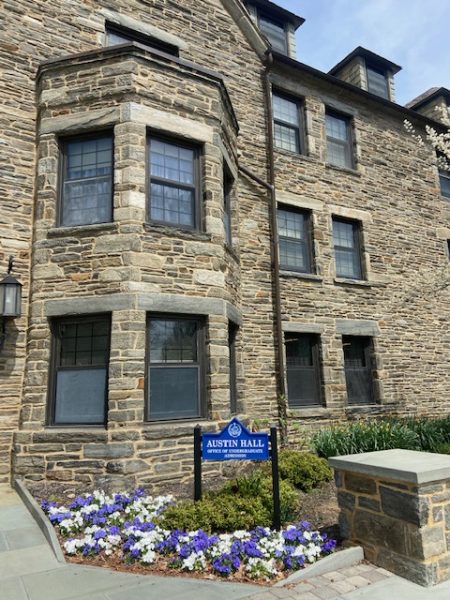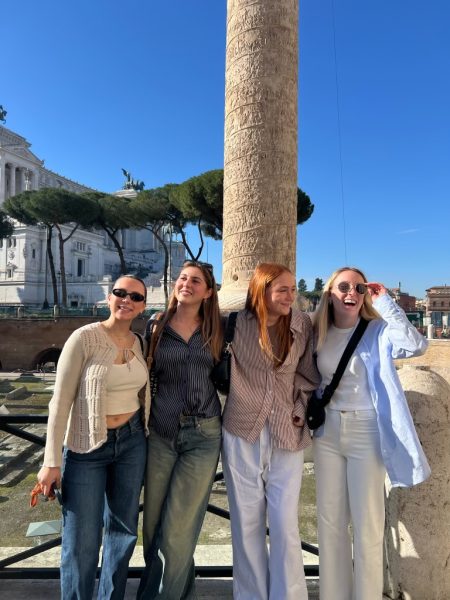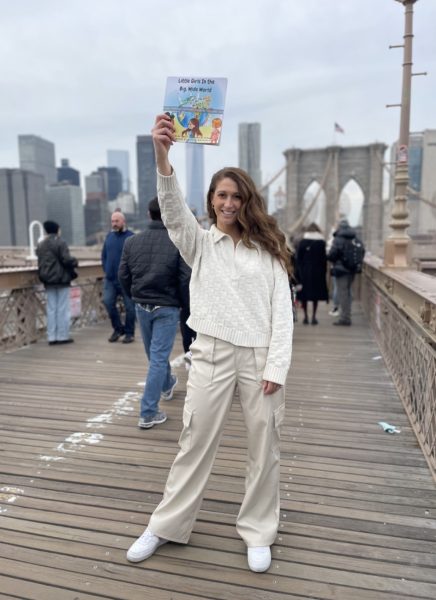Dr. Langran to leave the University with a lasting legacy
April 9, 2015

Five decades. Eleven presidencies. Four U.S. wars. Robert Langran has taught through them all. After 56 years of teaching, he will finally retire this May after the conclusion of his last class—Women and Politics.
Langran was born in New York City and lived in the area until his teen years when he moved to Minneapolis and then to Chicago. He was an only child with devoted parents who believed in both his work ethic and his natural intelligence. Langran attended Loyola University where he was also in the Reserve Officers’ Training Corp. Three weeks after graduation, Langran packed up and moved to Aberdeen, Md., where he was stationed for two years of active duty as a lieutenant. After his years of service, Langran moved back to New York where he obtained a full scholarship to get his master’s degree from Fordham University.
After completing his master’s, Langran began teaching at Villanova in 1959, back when the school was still only open to males. He finished his Ph.D., which focused on a Supreme Court case about Bible readings in public schools, at Bryn Mawr College. During his time here, Langran chaired the Political Science Department for 11 years as well as coached the men’s and women’s tennis teams for 27 and 25 years, respectively. In fact, women’s tennis was the first female sport offered at Villanova. Despite Langran’s development of Parkinson’s Disease, his achievements showcase his level of commitment to his students, commitment he also shows in his love for his wife and family. He married his wife, Eleanor, after his first semester of teaching and their devoted relationship can be seen in Langran’s dedication to her in his book “The Supreme Court, A Concise History”:
“This book is dedicated to my wife, Eleanor Langran, who inspires me to be the best and whose patience was outstanding while I was writing it.” Together they have three accomplished children and two grandchildren.
Langran’s legacy as a charismatic teacher and dedicated coach will live on after he has left the University. I am currently taking his final class and had the chance to sit down and interview him about his career and his life as a Villanova educator.
Why did you originally choose to teach at Villanova?
It was the only school that had an opening. I applied to 40 schools, and Villanova was either the 39th or 40th because I applied to them at the same time. I didn’t know if I wanted to be a lawyer or a teacher.
I just had served two years in the army and when I got out, I noticed that they were registering for graduate courses at Fordham in political science…I drove up there and met the chairman and it seemed like a good master’s program…so I asked him if he had any scholarships or assistantships available and what did I know, right? And he said, “We have one of each but they’re given out in March.” But then he said just this morning–it was a Saturday–just this morning the woman who got the full tuition scholarship told them she wasn’t going to come…So I got it.
Do you remember how you felt on your first day of teaching 56 years ago?
I was…I don’t want to say frightened…nervous. I was very nervous. I asked one of the younger faculty members “What do you do the first day of class?” And he said, “Oh, you just pass out the syllabus and let them go.” So I did.
So I went back to the office and the chairman comes out. And he says, “What are you doing here you’re supposed to be in class?” I said, “I met them, and I gave them the syllabus and I let them go.” He said, “Why’d you do that?” and I said “Well I was told that’s what you do the first day.”
And he wondered who told me and I said just one of the colleagues. And he said, “From now on, you ask me if you have any questions.” And I thought I’d never get past the first day and I was probably going to get fired…When I asked the teacher who told me what to do he said, “Well I didn’t think you would come back to the office!”
If you could have been anything else besides a teacher, what would you have chosen?
[Laughs] I told you I don’t know how to do anything else…maybe to be a famous athlete.
What is something this generation of students, or young people, doesn’t understand yet?
I don’t think they have an appreciation of what went before them. In other words, a history of things. I think they’re more into the present and the future. Not that you should live in the past but, as they say, if you can’t learn from the past you’re bound to make those mistakes all over again.
How did you meet your wife?
I met her on a blind date up in New York that was arranged by one of my army buddies and his fiancé, ’cause the two women were best friends.
Was it love at first sight?
[Laughs] We hit it off very well. Although I didn’t call again for a while because I got involved with Fordham with my master’s and I finally called my friend’s girlfriend up when the Yankees won the World Series in 1958, ’cause I was a Yankee fan and my friend was a Dodger fan. So I called them up to rub it in…and she said to me, “Didn’t you like Eleanor? She’s wondering why you haven’t called again” and I said, “Well I’ve been busy…” *laughs* So I called and we went on a second date and a third date and that was it.
Are the liberal arts and a liberal arts education as important as they were 50 years ago?
I think so, sure. Because it prepares you for life whereas the others tend to put you into a certain area, whereas with liberal arts you can do anything. But try telling that to the high school parents when they come in and I’d ask the kid “what do you think you’d like to take at Villanova?” And the father usually put in and said ‘Business’ or something that had money at the end of it.
What is your favorite thing to do with your grandkids?
I like to read to them. Right now, I’m reading the Hardy Boy books to our grandson and we’re ready to start book three. And there are 85 books so I don’t think I’ll get quite through with them all.
Do you think that the United States as a country is moving in the right direction?
Let’s see…I think they seem to be making strides in the environmental area and that’s important. I don’t think I agree with the way we’re moving militarily, the defense policy. I don’t agree with sending troops in and keeping them there…like Obama would say he’d get us out of Afghanistan by the end of this year except for some left in there and now he’s going to leave more there than he was going to. I just can’t see our people getting killed in these other parts of the world. I was very upset, for example, when Bush Jr. invaded Iraq.
What’s the worst Supreme Court decision of all time?
Dred Scott v. Sandford
What’s the best Supreme Court decision of all time?
Brown v. Board of Education
How has having Parkinson’s affected your teaching?
I’m not as energetic as I used to be. My voice doesn’t carry as much as it used to, and it’s very difficult for me to get here and get back from here. My wife has to drive me both ways because I can’t even make that little walk to our house.
What is your favorite thing about being a teacher?
I think imparting knowledge to young minds and opening them up to things they maybe had never been exposed to before. It’s extremely gratifying when people, after they leave Villanova, write you back or email you and tell you what a great course it was, how much they learned, how much they enjoyed it and so forth…
It happens frequently. It won’t happen much anymore since this is the end…it’s always nice. It makes you feel good. In fact, what makes you feel really good is that sometimes they say how my course changed their lives. They decided to go into law or this or that and they wouldn’t have done it if it hadn’t been for my courses.
Who’s your favorite person to read?
For the classics I always liked Mark Twain, but for the new ones I like John Grisham’s books.
If you had a piece of advice to give to someone my age, what would it be?
Just go for whatever you believe you want to do. You can be whatever you want to be, just know what you want to be, though. And that might take a while. A lot of times you don’t know, when you’re in college or even when you just get out, what you really want to do.

